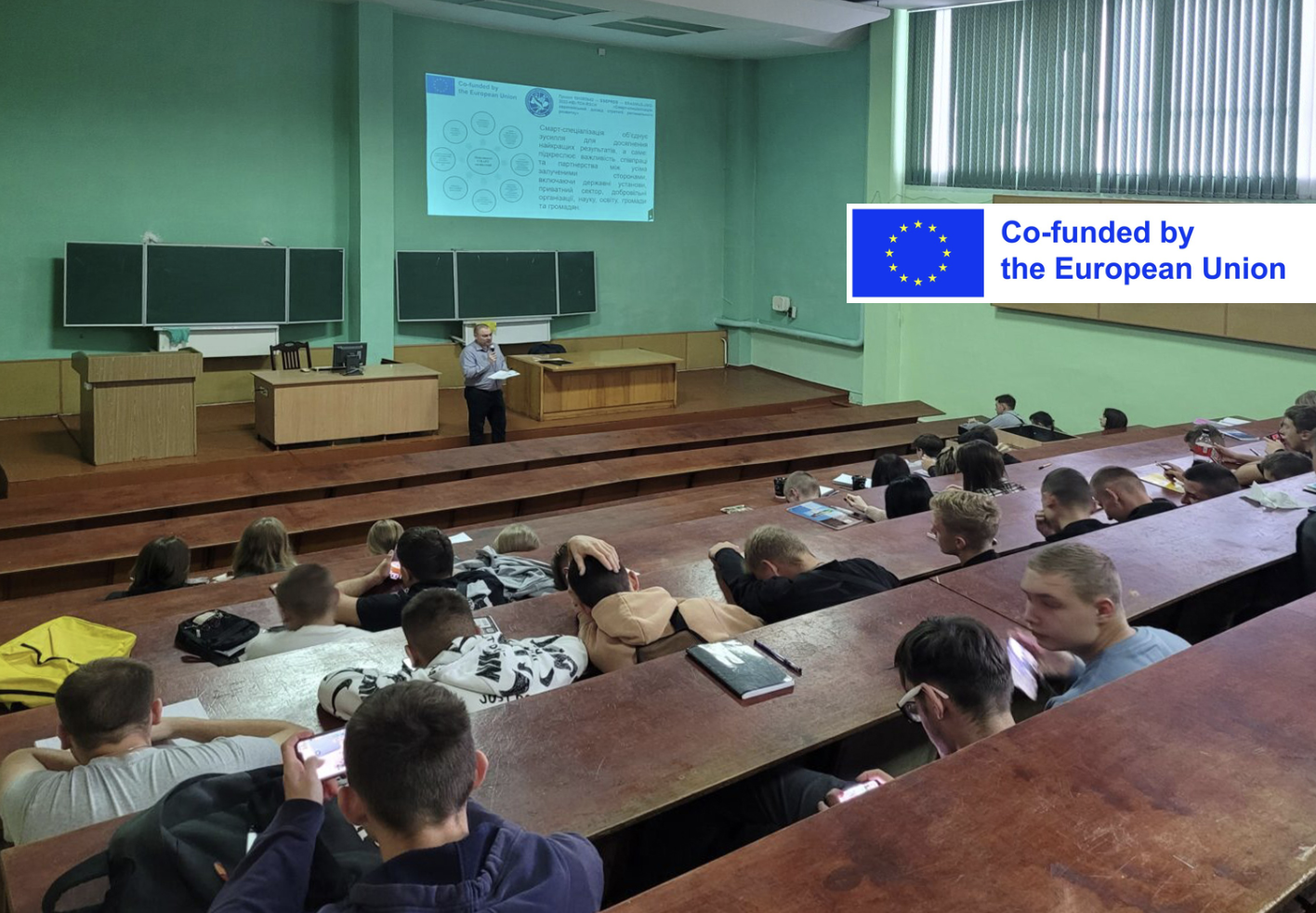A lecture on “Smart Specialization as an Innovative Approach to Strategic Planning for Regional Development” was held within the framework of the Jean Monnet Module, Erasmus (Project 101085642 – SSEPRDS – ERASMUS-JMO-2022-HEI-TCH-RSCH “Smart Specialization: European Experience in Regional Development Strategy”).
The following issues were discussed during the lecture:
1. The essence of smart specialization.
2. Innovation policy as a priority for Ukraine’s development.
3. Smart specialization as a basis for strategic planning of regional development.
The lecture gathered 75 bachelors in the audience, who carefully read the report of the lecturer, Doctor of Economics, Professor Petro Putsentailo, head of the project “Smart Specialization: European Experience of Regional Development Strategy”. During the lecture, it was determined that smart specialization is one of the central places in the modern innovation policy of the world’s leading countries, in particular in the European Union. In the regional policy of European countries, the strategy of smart specialization is an important and effective tool for accelerating innovative development, structural and technological modernization, and increasing the competitiveness of regions. Smart specialization combines efforts to achieve the best results, namely: emphasizes the importance of
cooperation and partnerships between all stakeholders, including government agencies, the private sector, voluntary organizations, science, education, communities and citizens.
The course of lectures of the Project 101085642 – SSEPRDS – ERASMUS-JMO-2022-HEI-TCH-RSCH “Smart Specialization: European Experience of Regional Development Strategy” continues.
We invite everyone to attend the lecture series and take an active part in studying the European experience of the smart specialization regional development strategy!
The project is funded by the European Union. However, the views expressed and The opinions are those of the author(s) alone and do not necessarily reflect the views of of the European Union or the European Executive Agency for Education and Culture (EACEA). Neither the European Union nor the grantor can be responsible for them responsibility.

